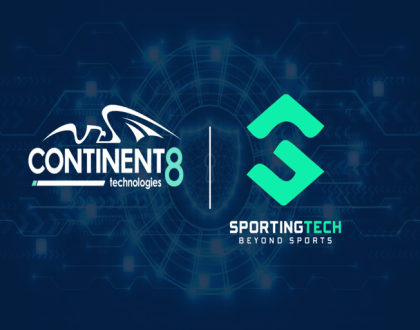Changing Seas of iGaming Laws

Changing regulations and legislation are steering the course of the iGaming industry, creating a landscape that requires constant attention and adaptation. From stricter compliance requirements to emerging market opportunities, staying abreast of the legal currents is paramount for operators and players alike. This blog dives into the tumultuous waters of iGaming laws, shedding light on the most critical challenges and promising prospects that shape the future of online gaming.
Overview of iGaming Laws
Defining iGaming and Its Components
Components of iGaming refer to all forms of online gambling, including online casinos, sports betting, poker rooms, and virtual gaming platforms. These activities are conducted through the internet, allowing players to participate in real-time from their computers or mobile devices. iGaming also encompasses the use of virtual currencies, such as Bitcoin, for betting and transactions in online games.
The Evolution of Online Gaming Regulations
iGaming laws have undergone significant changes over the years as technology and the popularity of online gambling have advanced. Initially, online gambling operated in a legal grey area with little to no regulation in many jurisdictions. However, as the industry grew, governments worldwide started implementing laws and regulations to govern online gaming activities and protect consumers. These regulations cover a wide range of issues, including licensing requirements, player protection measures, and responsible gaming initiatives.
The increased regulatory scrutiny has resulted in a more secure and transparent iGaming environment, providing players with greater protection from fraud and malpractice. While these regulations may vary from country to country, the overarching goal is to ensure that iGaming operators conduct their business ethically and in compliance with the law.
International iGaming Legislation
Little can be as complex and ever-evolving as the landscape of iGaming legislation on an international scale. With every country taking its approach to regulating online gambling, operators must navigate a myriad of laws and regulations to stay compliant.
Regulatory Models Across Different Jurisdictions
One of the significant challenges for iGaming operators is the diverse regulatory models adopted across different jurisdictions. While some countries have a monopolistic system where the government holds sole control over online gambling operations, others have opted for a competitive market with multiple licensed operators. Understanding these various frameworks is crucial for operators to tailor their strategies and operations accordingly.
The Role of Licensing in iGaming Operations
Across jurisdictions, the role of licensing in iGaming operations cannot be overstated. Securing the necessary licenses is a fundamental requirement for operators to legally offer their services in a particular market. Compliance with licensing regulations is crucial, as operating without the proper permits can result in severe penalties, including hefty fines and potential shutdown of operations.
Jurisdictions may have differing requirements for obtaining licenses, such as demonstrating financial stability, implementing responsible gaming measures, and ensuring data protection protocols. Operators must stay abreast of these requirements and maintain a strong compliance framework to mitigate risks and ensure the sustainability of their iGaming operations.
iGaming Laws in the United States
Federal Regulations Impacting Online Gaming
Many complexities surround iGaming laws in the United States due to a combination of federal and state regulations. At the federal level, online gaming falls under the jurisdiction of the Unlawful Internet Gambling Enforcement Act (UIGEA) of 2006. This act prohibits the transfer of funds from financial institutions to online gambling sites, making it challenging for iGaming operators to conduct transactions.
State-Level Legislation and Variability
United States iGaming laws exhibit significant variability on a state-by-state basis. While some states have embraced online gambling and have established regulatory frameworks, others strictly prohibit it. This leads to a fragmented landscape where operators must navigate diverse regulations to ensure compliance.
For instance, some states have legalized online poker and casino games, creating lucrative markets for operators, while others maintain strict bans on all forms of online gambling due to concerns about consumer protection and potential social issues. Understanding the intricate nuances of each state's legislation is crucial for iGaming operators aiming to establish a presence in the US market.
The European iGaming Legal Framework
EU Policies and Directives Governing Online Gaming
To navigate the evolving landscape of iGaming in Europe, it is crucial to understand the policies and directives set forth by the European Union. The EU operates on the principle of free movement of goods and services among member states, which affects the regulation of online gaming. The European Commission has been actively involved in shaping the legal framework for iGaming across the EU, aiming to ensure consumer protection, prevent money laundering, and uphold the integrity of sports betting.
Country-Specific Regulations and Their Implications
Framework Country-specific regulations play a significant role in shaping the iGaming market within each respective country. While the EU provides a broad regulatory framework, individual member states have the autonomy to implement their regulations concerning online gaming. This decentralized approach often leads to a variety of regulatory requirements and licensing procedures across Europe, creating a complex environment for operators and players alike. Understanding these country-specific regulations and their implications is vital for navigating compliance and fostering a successful iGaming business.
European iGaming market is constantly evolving, influenced by both EU-level policies and country-specific regulations. While the EU aims for a harmonized approach to online gaming, the diverse regulatory landscape poses challenges for stakeholders. Adapting to the changing EU directives and understanding the nuances of country-specific regulations are crucial for operating legally and sustainably in the European iGaming market.
Compliance and Operator Responsibilities
Understanding Compliance Measures in iGaming
To ensure the integrity of the iGaming industry and maintain trust with players, operators must adhere to strict compliance measures. These measures include obtaining appropriate licenses, implementing responsible gaming tools, conducting thorough age verification checks, and employing robust anti-money laundering protocols. Compliance is not just a legal obligation; it is important for the long-term sustainability and reputation of iGaming operators. By following these measures, operators can create a safe and secure environment for players to enjoy their favorite games responsibly.
The Impact of Non-Compliance on Operators and Players
To understand the severity of non-compliance in the iGaming sector, we must examine its consequences on both operators and players. For operators, non-compliance can result in hefty fines, revoked licenses, and irreparable damage to their brand reputation. For players, non-compliance can lead to issues such as not receiving proper payouts, lack of protection for sensitive information, or even being exposed to fraudulent activities. It is crucial for all stakeholders in the iGaming industry to prioritize compliance to ensure a fair and transparent gaming environment.
The Impact of Non-Compliance on Operators and Players: Non-compliance can also have legal implications, with operators facing litigation and players being left without recourse for unfair practices. It is in the best interest of both parties to uphold stringent compliance standards to foster a trustworthy relationship in the iGaming community.
The Future of iGaming Legislation
Emerging Trends in Online Gaming Law
For online gaming enthusiasts and industry stakeholders, staying ahead of emerging trends in online gaming law is crucial. One notable trend is the increasing focus on consumer protection measures, such as age verification and responsible gaming initiatives. With the rise of online gaming platforms, regulators are placing higher importance on ensuring the safety and security of players.
Another trend to watch is the global trend towards standardization and harmonization of iGaming laws. As the industry continues to grow, there is a growing need for consistent regulations across different jurisdictions to protect both players and operators. This trend is likely to result in more collaboration between international regulatory bodies to create unified standards for the iGaming industry.
Predicting the Impact of Technological Advancements
To predict the impact of technological advancements on iGaming legislation, we must consider the rapid evolution of technology in the industry. Advancements such as virtual reality, artificial intelligence, and blockchain have the potential to revolutionize the way online gaming is regulated. These technologies can improve player experience, enhance security measures, and provide more transparency in the iGaming sector.
It is crucial for lawmakers, regulators, and industry stakeholders to stay informed and adaptable to the ever-changing landscape of iGaming laws. By understanding emerging trends and predicting the impact of technological advancements, the iGaming industry can navigate future legislative changes with confidence and ensure a safe and enjoyable experience for all players.
Navigational Strategies for Stakeholders
Best Practices for Operators Adapting to New Laws
All operators in the iGaming industry must stay nimble and adaptable in the face of ever-changing regulatory landscapes. Adapting to new laws requires a proactive approach, including regularly monitoring legal updates, seeking legal counsel, and implementing robust compliance measures. By staying ahead of the curve, operators can minimize risks and seize opportunities in emerging markets.
Legal Considerations for Software Providers and Affiliates
Software providers and affiliates play a crucial role in the iGaming ecosystem, but they must navigate a complex web of regulations to ensure compliance. Legal considerations for these stakeholders include understanding licensing requirements, data protection laws, and responsible gaming practices. Collaborating with legal experts can help software providers and affiliates mitigate legal risks and uphold industry standards.
Best practices for software providers and affiliates involve conducting due diligence on potential partners, implementing robust compliance procedures, and staying informed about regulatory changes. Engaging in transparent communication with regulators and prioritizing ethical business practices can build trust with customers and regulators alike.
Challenges and Controversies in iGaming Laws
Balancing Revenue with Responsible Gaming
Now more than ever, governments and regulatory bodies are faced with the task of balancing the lucrative revenue generated by iGaming with the need to ensure responsible gaming practices. The rise of online gambling has brought about concerns regarding problem gambling, underage gambling, and the potential for money laundering through these platforms.
To address these challenges, regulators have implemented strict guidelines and protocols for operators to follow. These measures include age verification processes, limits on deposits and bets, as well as tools for players to self-exclude or set limits on their own gaming activity. By promoting responsible gaming practices, regulators aim to minimize the negative impacts of iGaming while still allowing the industry to thrive.
The Ongoing Debate Over iGaming's Legal Status
To research into the ongoing debate over iGaming's legal status, one must consider the differing opinions and laws across various jurisdictions. While some countries have fully legalized and regulated online gambling, others have taken a more restrictive approach, banning or limiting access to these platforms. The lack of uniformity in iGaming laws worldwide has sparked debates among policymakers, industry stakeholders, and the public.
Gaming advocates argue that legalizing iGaming can bring about significant economic benefits, including increased tax revenue and job creation. However, opponents raise concerns about the potential for gambling addiction, money laundering, and the impact on traditional brick-and-mortar casinos. As the debate continues, finding a middle ground that satisfies all parties involved remains a complex and ongoing challenge in the regulation of iGaming.
Final Words
As a reminder, staying informed and adapting to the rapidly changing landscape of iGaming laws is crucial for both operators and players in the industry. By keeping up-to-date with the latest regulations and making proactive changes to comply with new laws, businesses can minimize their risk of fines and penalties while also preserving their reputation and credibility in the market. Players also need to be aware of the legal environment in which they are operating to ensure they are engaging in safe and legal online gaming activities.
Overall, navigating the changing seas of iGaming laws requires constant vigilance and a willingness to evolve with the regulatory environment. By working together to uphold the integrity of the industry and foster a sense of responsibility, stakeholders can ensure a sustainable and thriving iGaming ecosystem for years to come.
FAQs:
What is iGaming, and what does it encompass?
iGaming refers to online gambling activities, including online casinos, sports betting, poker rooms, and virtual gaming platforms, conducted through the internet.
How have iGaming regulations evolved over time?
Initially operating in a legal grey area, iGaming regulations have become stricter globally to protect consumers, covering licensing, player protection, and responsible gaming.
What are the challenges of navigating international iGaming legislation?
Operators face diverse regulatory models across different jurisdictions, from monopolistic systems to competitive markets, necessitating tailored strategies for compliance.
What role does licensing play in iGaming operations, and why is it crucial?
Licensing is fundamental for operators to legally offer services, with compliance essential to avoid penalties such as fines or shutdowns.
What are the key considerations for stakeholders regarding compliance and responsibilities?
Adherence to strict compliance measures, including obtaining licenses and implementing responsible gaming tools, is crucial for maintaining trust and sustainability.
Recommended Posts

Kaizen Gaming’s Success at SBC Awards 2024
October 4, 2024

Sportingtech Boosts Security with Continent 8
October 4, 2024

Hidden Treasures of Rome Slot by Swintt
October 4, 2024




